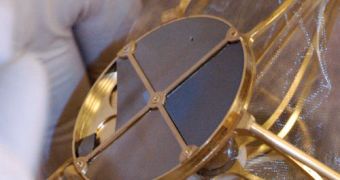Researchers at the Massachusetts Institute of Technology (MIT) Department of Brain and Cognitive Sciences demonstrate in a new study that small infants as young as 16 months can distinguish between the effects of their actions, and the consequences of actions taken by others.
Understanding the difference comes natural to humans, but researchers thus far did not know whether we are born with this ability, or if we acquire it over time. The new research shows that indeed the latter proposal seems to be accurate.
Interestingly, infants are able to make this distinction at 16 months using very small amounts of statistical data the team learned. The work is detailed in the June 24 issue of the top journal Science.
The team says that small children are basically capable of summing up prior knowledge with statistical data, in order to create an accurate inference about the causes of the failed action they are seeing. They can then easily determine whether it was their fault or not.
MIT experts Hyowon Gweon and Laura Schulz tested to see if infants were able to determine the reasons why a toy failed to function. Two scenarios were set up, one in which the children were responsible for the malfunction, and another in which someone else was to blame.
Scientists are keen on conducting such observations because this ability is a key part of cognition, a sum of mental processes that is still very poorly understood. By breaking it down into little pieces, and then studying them exhaustively, scientists hope to get a better understanding of the whole processes.
“If we try to turn on a light and are left in the dark, did we do something wrong (e.g., flip the wrong switch), or is something wrong in the world (e.g., a bulb burned out)?” the team writes.
This is just a basic example of how people assign causal responsibilities to themselves or to the external world, and this is usually quite simple. But things get more complicated later on in life, when the consequences of a person's action may work subversively, and cause unwanted ripple effects.
The US National Science Foundation (NSF) Directorate for Education and Human Resources (her), through its Research and Evaluation on Education in Science and Engineering (REESE) program, funded the new study, entitled “16-month-olds Rationally Infer Causes of Failed Actions.”
“These results run contrary to assumptions that prevailed in education for decades that young children were unable to distinguish among causes in this manner, and it has implications for curricular design in early childhood,” says expert Gregg Solomon.
The research scientist is the cluster coordinator for the REESE program, in the EHR Division of Research on Learning,
“It's surprising that these young infants can already rationally navigate between the two choices and choose the more informative source of information depending on where they attribute the cause of the failure,” Gweon concludes.

 14 DAY TRIAL //
14 DAY TRIAL //